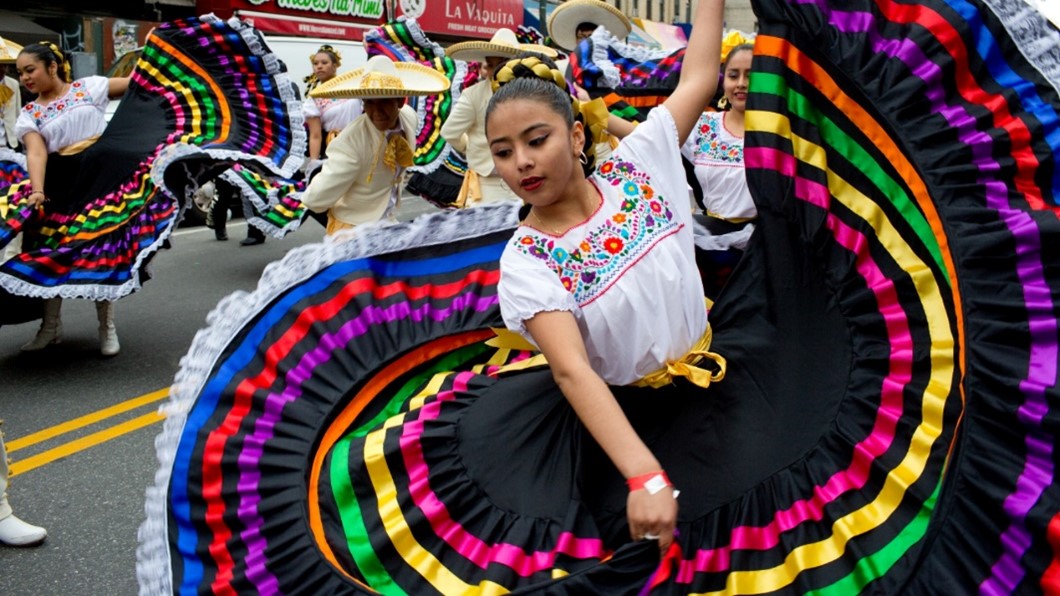Cinco de Mayo is an often-misperceived holiday with many misconceptions surrounding its origins. Many Americans have at least heard of the holiday, but the vast majority of them mistakenly believe that is Mexican Independence Day. To clear up the confusion and accurately represent this Mexican cultural and historical milestone, here is the history and significance of Cinco de Mayo.
- The Beginning of the Conflict:
Cinco de Mayo (in Spanish, the 5th of May) celebrates the date of the Mexican Army’s victory over France on May 5, 1862, at the Battle of Puebla during the Franco-Mexican War. Benito Juárez, a lawyer and member of the Indigenous Zapotec tribe, was elected president of Mexico in 1861. With the country in financial ruin due to years of internal dilemmas, the new president was given no choice but to default on debt payments to various European governments. In other words, the country could not pay back its own debts. Seeking payment, France, Britain, and Spain sent naval forces to Veracruz, Mexico. Britain and Spain were able to negotiate with Mexican officials and withdrew their forces, but France, under the rule of power-hungry dictator Napoleon III, took the opportunity to seize a portion of Mexican land for an empire. Later in 1861, a well-armed French fleet stormed Veracruz, which sent President Juárez and his government into retreat.
- The Battle of Puebla:
Certain that victory was easily within reach, six thousand French troops, under General Charles Latrille de Lorencez, were sent to attack Puebla de Los Angeles, a small town in east-central Mexico. From his new headquarters in the north, Juárez gathered up a ragtag group of two thousand Mexican men, many either Indigenous Mexicans or those of mixed ancestry, and sent them in response to the French to Puebla. Despite being extremely outnumbered and lacking in supplies, the army, led by Texas-born General Ignacio Zaragoza, fortified the town, and prepared for the upcoming battle. On May 5, 1862, Lorencez gathered his army before the town and began his assault. The battle lasted from daybreak to early evening, and remarkably, the French lost about five hundred soldiers when they finally retreated, while less than one hundred Mexican soldiers died in the conflict. Even though it was not a major strategic victory for Mexico in the greater war against the French, General Zaragoza’s win at the Battle of Puebla was a hugely symbolic victory for the Mexican government and reinforced the resistance movement. In 1867, with military support and political pressure from the post-war United States, France finally withdrew from Mexico.
- Cultural and Historical Significance:
Surprisingly, Cinco de Mayo is more widely celebrated in the United States than in Mexico, where it is only considered a minor holiday. Within Mexico itself, the holiday is primarily observed in the state of Puebla, where the improbable victory occurred. Celebrations and festivities include military parades, historical reenactments of the Battle of Puebla, and other traditions. Ironically, it is not a federal holiday in Mexico, so for many Mexicans, it is just like any other day. In contrast, Cinco de Mayo has blossomed into a celebration of Mexican culture and heritage in the United States, most especially in areas with substantial Mexican American populations. Chicano activists, part of the Chicano Movement, first raised awareness of the holiday in the 1960’s because they identified with the victory of Indigenous Mexicans over European invaders during the Battle of Puebla. Today in the United States, citizens of all backgrounds celebrate with parades, parties, mariachi music, Mexican folk dancing, and traditional foods such as tacos and mole poblano, with some of the largest festivals being held in Los Angeles, Chicago, and Houston.
It is imperative to know the true meaning and origins of every holiday we celebrate. Even though it is important to have days of enjoyment and rest, holidays are not meant to just be excuses to party and have fun. For example, imagine that not everyone knew the true meaning of Christmas. Knowing the origins of holidays and why we celebrate them enhances their celebration and deepens the camaraderie we share in doing so. The entire purpose of marking special days on our calendars as holidays is to celebrate and remember a historical event or aspect of a culture. This purpose would be lost if we only reveled in the enjoyment of these days in a culturally empty way. So, before you begin making plans for the celebration of the next holiday, make sure to do your research to find out for yourself why that day is so important.
References
Encyclopædia Britannica. (n.d.). Cinco de Mayo. Britannica School. Retrieved May 15, 2024, from https://school.eb.com/levels/high/article/Cinco-de-Mayo/389223
History.com Editors. (2024, May 3). Cinco de mayo 2024: Facts, meaning & celebrations. History. Retrieved May 15, 2024, from https://www.history.com/topics/holidays/cinco-de-mayo

